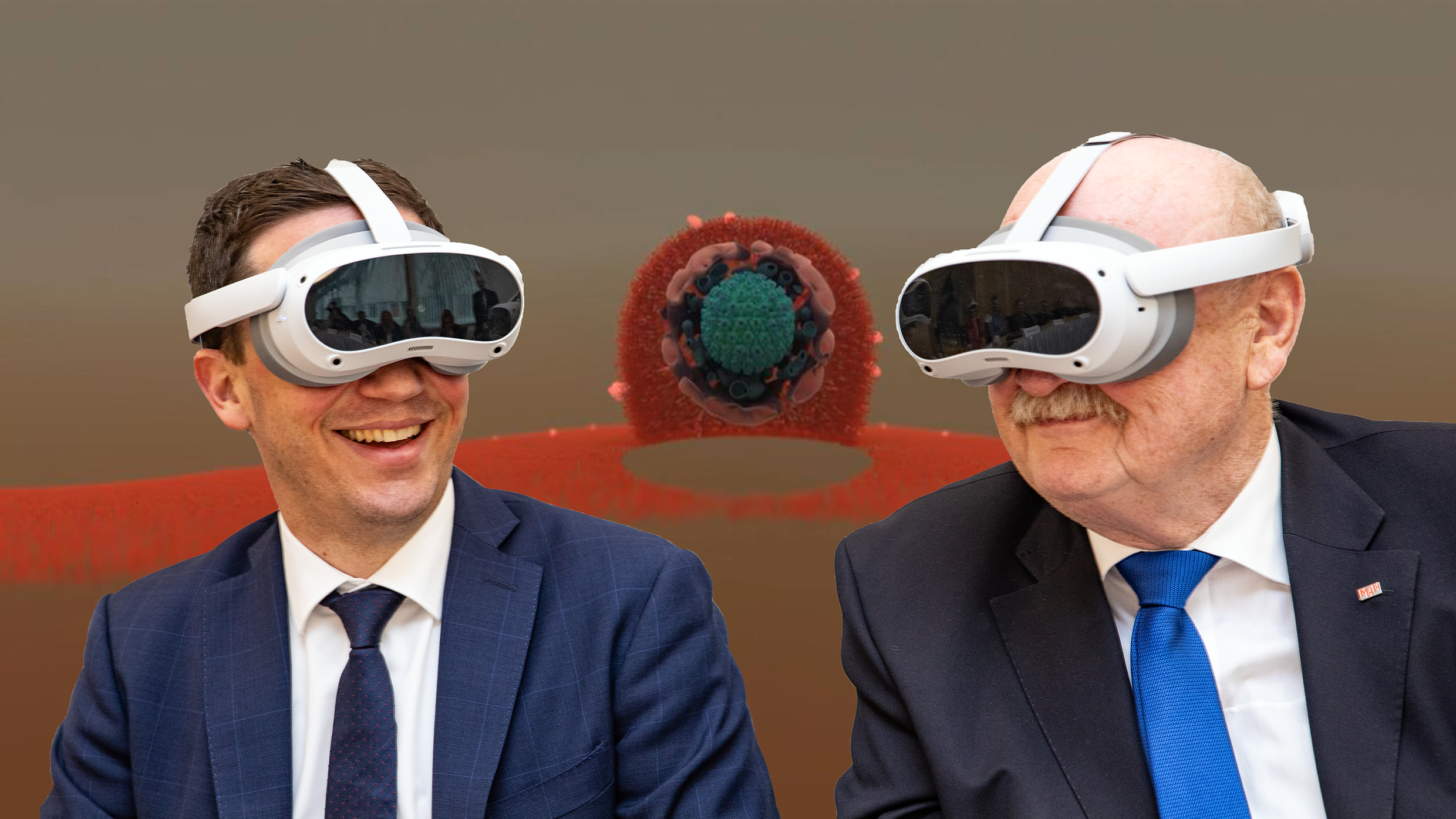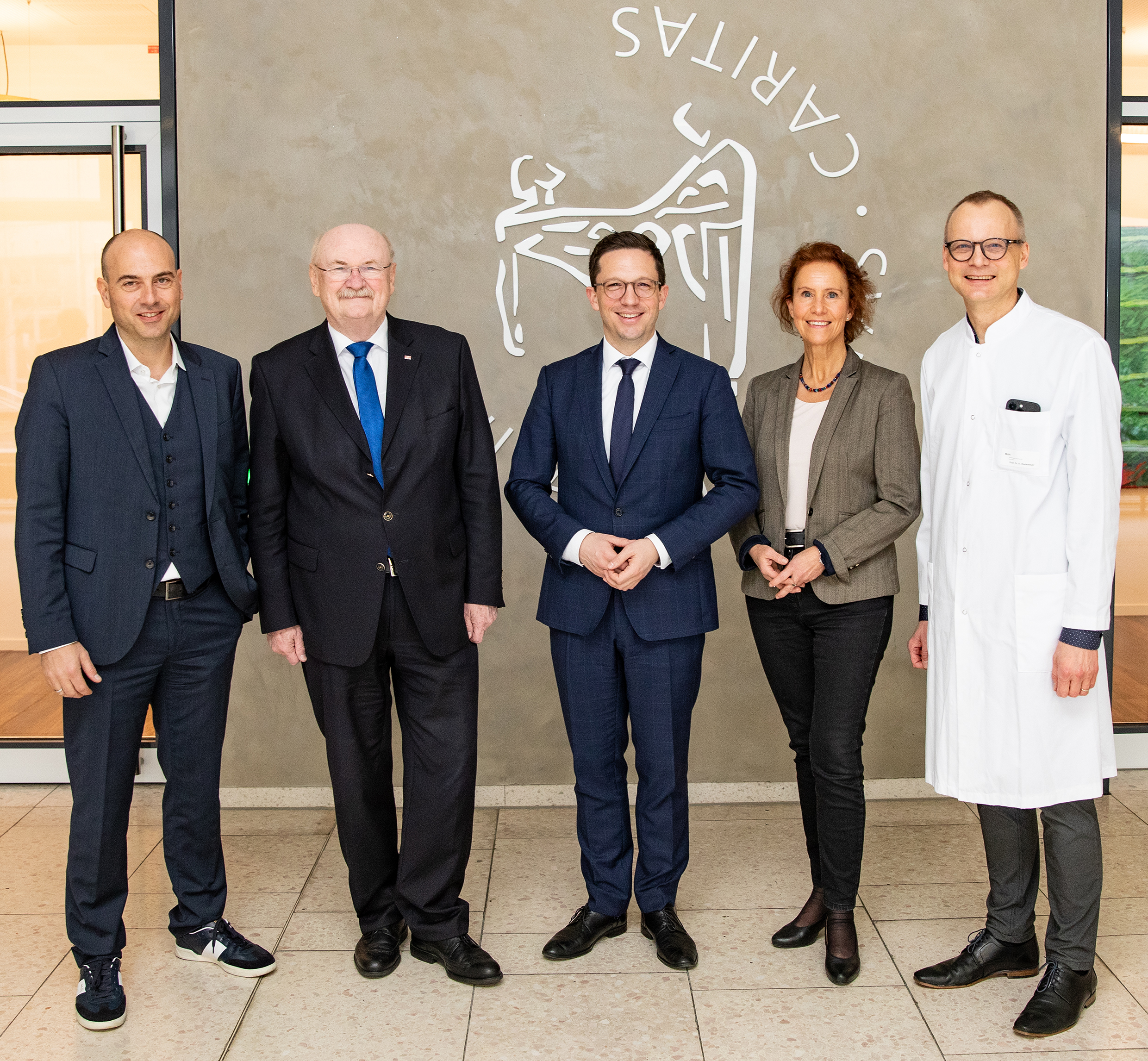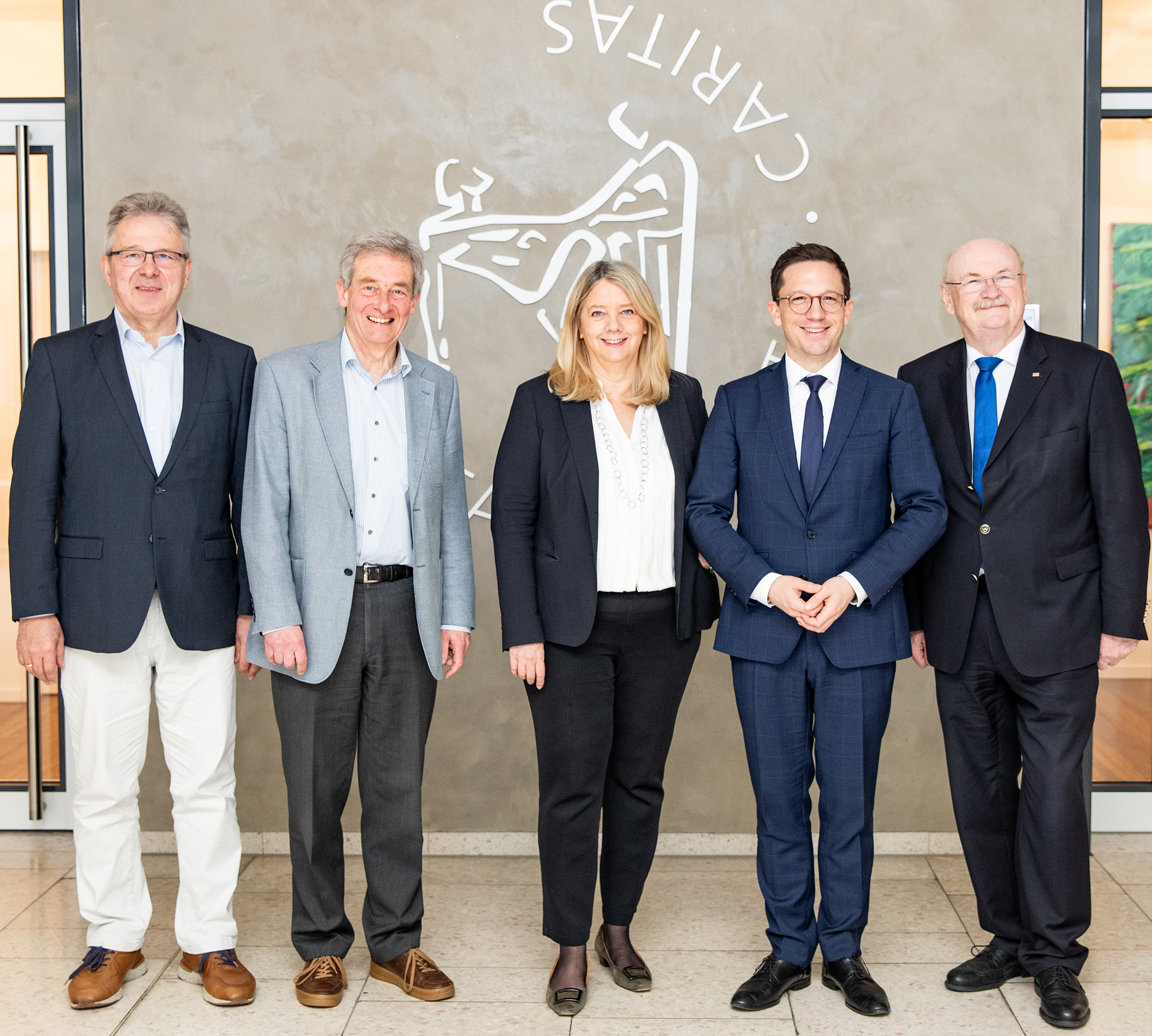Scientists from RESIST and R-CUBE present their projects.

Minister Falko Mohrs and MHH President Professor Michael Manns watch a virtual reality film showing how the cold sore virus enters the body. Copyright: Karin Kaiser / MHH.

Ministerial visit to R-CUBE: Professor Thomas Thum, MHH President Professor Michael Manns, Minister Falko Mohrs, Professor Christine Falk and Professor Heiner Wedemeyer (from left). Copyright: Karin Kaiser / MHH

Ministerial visit to RESIST: Professor Reinhold Förster, Professor Thomas F. Schulz, Professor Gesine Hansen, Minister Falko Mohrs and MHH President Professor Michael Manns (from left). Copyright: Karin Kaiser / MHH
Researchers across Germany are currently working on their applications for funding as a Cluster of Excellence - including at Hannover Medical School (MHH). The deadline for applications is in August. Lower Saxony's Science Minister Falko Mohrs has visited the research alliances at the universities in Lower Saxony that are eligible to apply. At the MHH, the Minister was informed about the existing RESIST Cluster of Excellence and the R-CUBE cluster initiative.
R-CUBE is all about organ regeneration, repair and replacement
In February, the MHH learned that the MHH cluster initiative R-CUBE had been invited to submit a full application from the draft proposals submitted for new clusters of excellence. The translational research consortium aims to strengthen clinical practice and research in advanced organ failure and thus improve patient care. R-CUBE will develop multimodal diagnostic tools for a personalized form of treatment that will support organ regeneration and repair and offer novel strategies for organ replacement.
RESIST - Research for the most vulnerable
The mission of the researchers at RESIST is to conduct research for the most vulnerable. Some people only fall ill easily when they "catch" viruses or bacteria, while others suffer very severely. The team at the RESIST Cluster of Excellence is investigating why infections progress so differently, whether disease progression can be predicted and how individual therapies can be developed.
State supports cutting-edge research at the MHH
"The continuation application of the RESIST cluster, the new R-CUBE cluster initiative and participation in the Hearing4All cluster illustrate the high national and international relevance of MHH's research and its importance in the Excellence Strategy of the federal and state governments," said Minister Mohrs. "With the new R-CUBE initiative, MHH's third research focus, transplantation and regeneration research, could also be represented within the framework of funded clusters of excellence in the future alongside infection research and biomedical engineering. With targeted excellence funding, tailor-made funding impulses, for example in personalized medicine, as well as our support in the battle for bright minds, we as a state are strengthening the MHH on its further path in the excellence strategy."
"MHH is entering the race with three applications - in the three priority areas of Infection & Immunity, Transplantation & Regeneration and Biomedical Engineering & Implants. That alone is remarkable," explained MHH President Professor Michael Manns. "We now need to join forces so that, if at least two clusters are approved, we will also be able to compete for the status of a University of Excellence."
Excellence strategy of the federal and state governments
With their Excellence Strategy, the federal and state governments want to strengthen Germany as a science location in the long term and further improve its international competitiveness. In the second funding period (January 1, 2026 to December 31, 2032), up to 70 clusters of excellence are to be funded. The 57 previously funded clusters, including RESIST, as well as 41 selected outlines for new clusters, including R-CUBE, are eligible to apply. The MHH is entering the competition for the Clusters of Excellence with a total of three research alliances, as the MHH, together with Leibniz Universität Hannover, is also involved in the existing Hearing4all Cluster of Excellence at the University of Oldenburg, which is researching technical solutions for personalized hearing support.
Text: Inka Burow